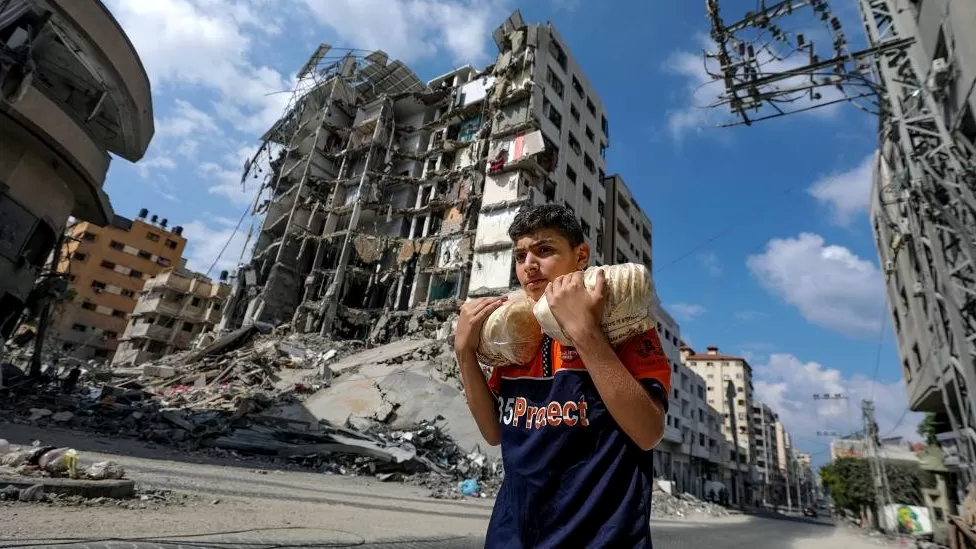
The world is still reeling from the unprecedent assault by Hamas gunmen on 7 October, and the subsequent retaliatory strikes by Israel and expected land invasion into the Gaza Strip.
We have received hundreds of your questions about the conflict, its impact and where it may end, with many people asking if other countries will get involved in the war.
Our correspondents, many currently in the region, have answered some of the most frequently asked questions below.

Could this lead to World War Three?
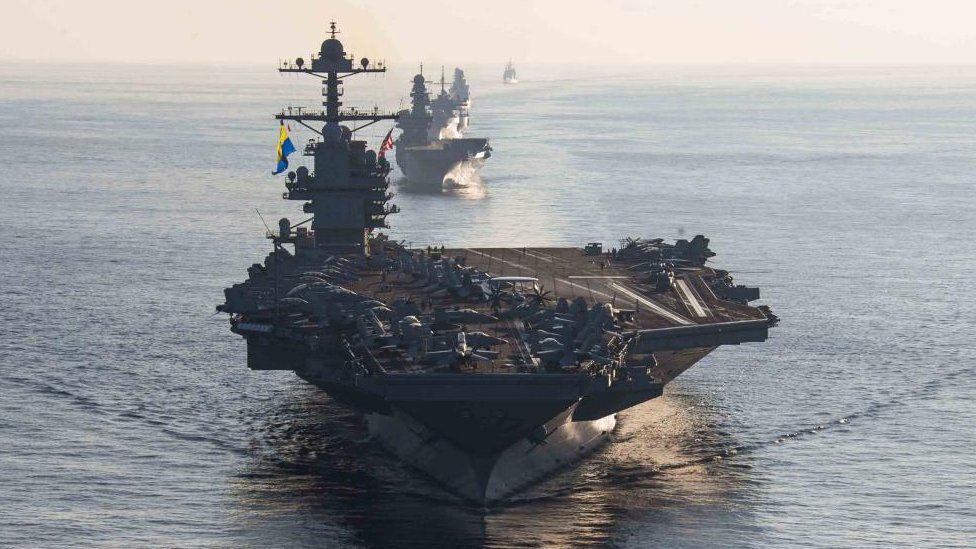
Craig Johnson in Skelmersdale, UK asks: If Iran gets directly involved in the conflict, would that prompt the US and its allies to directly join the war? And could this lead to a third world war?
Jeremy Bowen, our international editor, reporting from southern Israel, says:
When asked about the possibility of intervention by Iran or its Lebanese ally Hezbollah, Joe Biden said: “Don’t.”
The Americans just deployed two aircraft carrier battle groups to the eastern Mediterranean to send a very firm message to Iran to stay out.
They’re saying that if anyone intervenes, they will have American military might to reckon with, not just Israel’s.
One of the major fault lines in the Middle East runs between the US and its allies, and the Iranians and theirs.
Both sides are aware of the risks. If it went from a cold to a hot war it would ignite a Middle East conflagration of global significance.

What is Israel’s objective?
Luciano Sisi in the Scottish Borders asks: What is Israel’s overall objective with the anticipated ground war?
Lyse Doucet, our chief international correspondent, in southern Israel says:
In past wars, Israel vowed to “hit Hamas hard”, to destroy its capacity to fire rockets into Israel – including its vast web of subterranean tunnels.
This time is different. Israel is vowing “to destroy Hamas” – an organisation it says should be obliterated, like the Islamic State group.
Israel has the military might to smash Hamas’s infrastructure, crush its tunnels, and cripple its command and control networks.
But it’s not clear how much Israel knows about what awaits in Gaza. Hamas’s military prowess, including an astonishingly granular understanding of Israeli security that enabled it to outsmart its formidable defences, has shocked Israelis.
Hamas is likely to possess the same sophistication when it confronts what it knows will be a ferocious Israeli response.
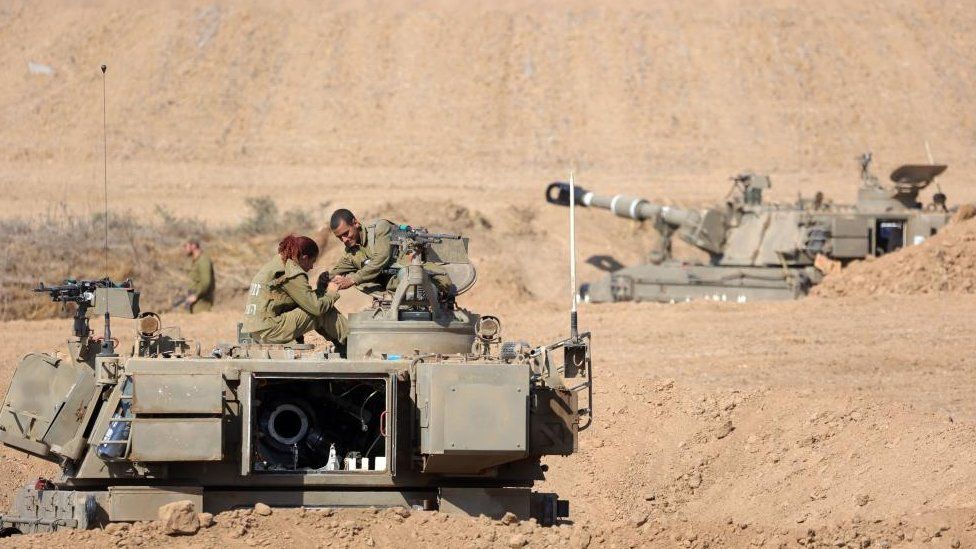
And unlike the Islamic State group, Hamas is also a political and social organisation embedded in Palestinian society.
A military onslaught can destroy its metal and concrete but not the mettle of the people whose resolve to die for their cause will only harden.

What was Hamas’s goal with their attack?
Andrew Parker in the UK asks: What was the goal of the initial Hamas attack?
Frank Gardner, our security correspondent, tells us:
The reason given at the time by Hamas’s spokesman Mohammed Al-Deif was that “enough is enough”.
The attack, he said, was in response to what Hamas called constant provocations and humiliations suffered by Palestinians at the hands of Israelis in both Gaza and the West Bank.
Analysts believe there may have been other, undeclared reasons.
Before the attack, Israel and Saudi Arabia were well on the way to normalising ties.
This was opposed by both Hamas and its backer, Iran. The Saudis have now suspended those talks.
But there will have been more to it than that.
Hamas’s leadership will have noticed the sharp divisions in Israeli society caused by judicial reforms introduced by the right-wing government of Benjamin Netanyahu.
They aimed to deal Israel a painful blow – and in that they succeeded.

More on Israel Gaza war
- Follow live: Latest updates
- Explained: What’s going on in Gaza and Israel, and why now?
- History behind the story: The Israel-Palestinian conflict
- Hamas’ attack on Israel: Who are the hostages?
- Inside Gaza: The families who won’t evacuate

Why is Egypt keeping the crossing closed?
Diana in the UK, who asks: Muslims speak of the family and brotherhood of Islam. How can Muslims in Egypt justify keeping their border with Gaza closed?
Jeremy Bowen, our international editor, reporting from southern Israel says:
Islam is a faith but it doesn’t necessarily transcend the politics of national security.
I’m certain millions of Egyptian Muslims want to alleviate the suffering of civilians in Gaza.
But the Egyptian government, even at quiet times, does not allow routine access from Gaza through the Rafah crossing. Egypt has been the junior partner in earlier versions of Israel’s siege of Gaza ever since Hamas took over there in 2007.
Hamas has its roots in the Muslim Brotherhood, an organisation founded in Egypt a century ago. The Brotherhood wants to reshape states and society in line with Islamic teaching and belief.
The Egyptian military opposes that desire. It overthrew an elected Muslim president in 2013.
Egypt’s current regime has relations with Hamas, and has in the past been the link between Hamas and Israel. But it does not want an influx of Palestinian refugees.
The camps in Gaza still exist 75 years after they were established to house refugees – forced out by newly independent Israel – who have never been allowed home.
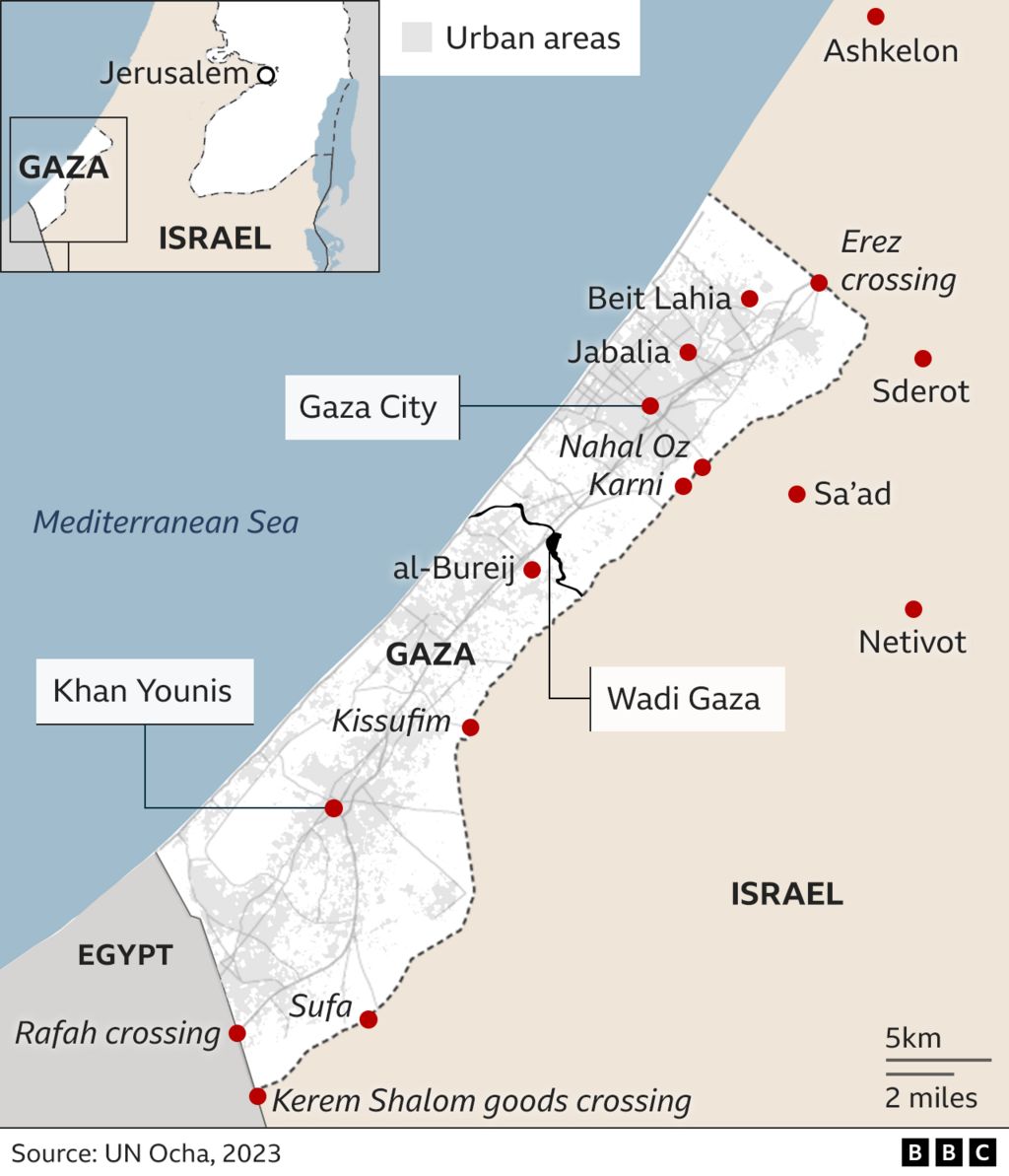

Has Hamas committed a war crime?
Simon in the UK asks: The world issued an international arrest warrant against Putin. Why has there not been the same response against Hamas leadership? Was this not a war crime on a massive scale?
Paul Adams, our world affairs correspondent answers:
Israel did not consider itself at war with Hamas before 7 October, despite previous rounds of conflict stretching back many years.
For Israel, this was an act of terrorism, not war.
Benjamin Netanyahu’s government is pursuing justice in its own way and has already killed at least two Hamas commanders it regards as responsible for the massacres.
It will doubtless attempt to kill many more.
Questions may arise about the organisation’s political leadership – which lives in Qatar and Lebanon – who, some say, were unaware of the military wing’s plans to attack inside Israel.https://emp.bbc.com/emp/SMPj/2.50.8/iframe.htmlMedia caption,
Watch: One week on – survivor Shye Weinstein recalls fleeing the Supernova festival

Why is the UN not intervening on air strikes?
Sadul Hoque from London asks: If everyone has agreed that Israel has been killing civilians and will kill a lot more in these new strikes, why are the UN and other countries not intervening?
James Landale, our diplomatic correspondent gives this answer:
The main reason why many countries are not urging Israel to stop its airstrikes is because they accept the country has been attacked by Hamas and has a right to defend itself.
Where they are urging restraint is about how Israel defends itself.
UK Prime Minister Rishi Sunak said this morning: “I’ve raised with the Israeli prime minister the need to minimise the impact on civilians as best we can.”
The United Nations too has urged Israel to avoid civilian casualties.
The UN Secretary General Antonio Guterres said a few days ago: “International humanitarian law and human rights law must be respected and upheld; civilians must be protected and also never used as shields.”
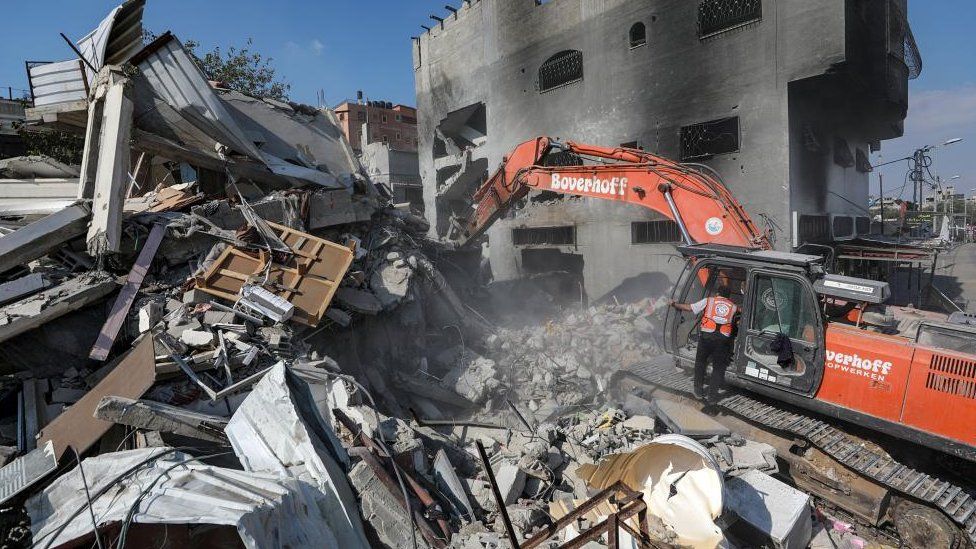
Israel insists its warplanes and artillery are striking Hamas targets in Gaza. But many civilians are indeed being killed and injured in those strikes.
Palestinians say that is because the Israeli strikes are excessive and indiscriminate. Israel says it is because Hamas uses civilians as human shields.

How did Israel not know about Hamas’s attack?
An anonymous reader asks: How is it possible that the Israeli military have enough intelligence and surveillance to know exactly where Hamas is stationed in Gaza, but it didn’t know Hamas were going to attack Israel or see any warning signs of the attack?
Yolande Knell, our Middle East correspondent, in Jerusalem, says:
In the past, Israel’s military has opened up its control centre for surveillance of Gaza to journalists, and it’s clear that it has excellent real-time information about movements on the ground from drones and other cameras.
It also has a vast network of informants.
We saw in May’s fighting with Islamic Jihad just how accurate Israel’s information on the whereabouts of leading militants could be.
In briefings, Israeli military officials accept there have been major intelligence and security failings when it comes to the unprecedented, deadly attack by Hamas.
However, we can rely on the fact that it has an accurate, long list of Hamas targets that it will go after as soon as it gets boots on the ground.

How does Hezbollah compare to Hamas?
Further north from the Gaza Strip, tensions are rising between Lebanon and Israel. One reader wants to know: If Lebanon gets involved, how big a force is Hezbollah compared to Hamas?
Hugo Bachega, reporting from southern Lebanon, says:
Hezbollah – a Lebanese military, political, and social movement – has long been seen by Israel as a more formidable force than Hamas.
The heavily armed Iranian-backed group has an estimated 130,000 rockets and missiles, according to the Center for Strategic and International Studies.
Most of this arsenal is made up of small, man-portable and unguided surface-to-surface artillery rockets.
But it also includes anti-aircraft and anti-ship missiles, as well as guided missiles capable of striking deep inside Israel.
This is much more sophisticated than what Hamas has at its disposal.
Hezbollah’s leader has claimed to have 100,000 fighters, although independent estimates vary between 20,000 and 50,000. Many are well trained and battle hardened, and have fought in the Syrian civil war.
Hamas, by comparison, has an estimated 30,000 fighters, according to Israel.
Source: bbc.com














